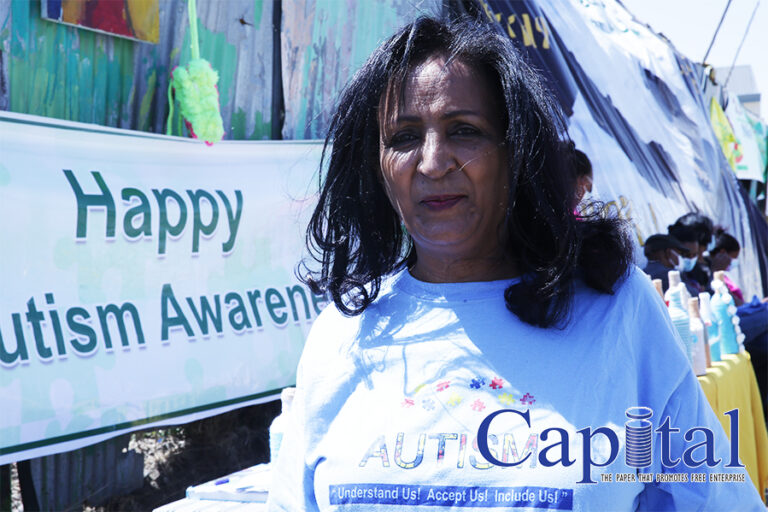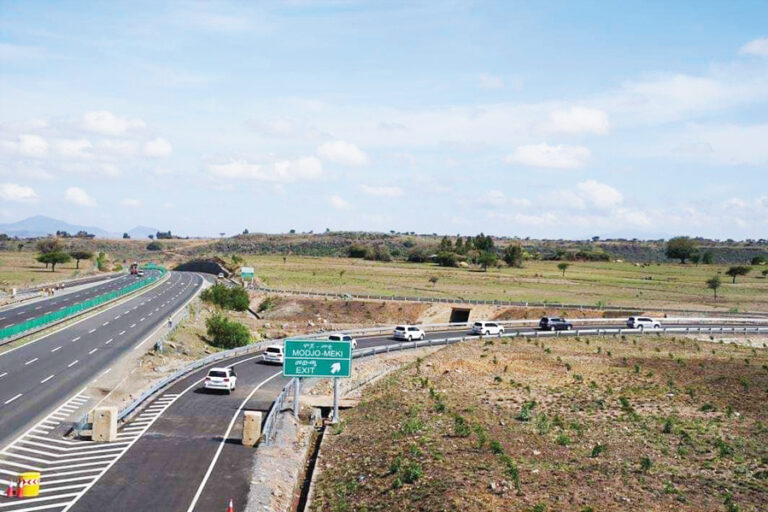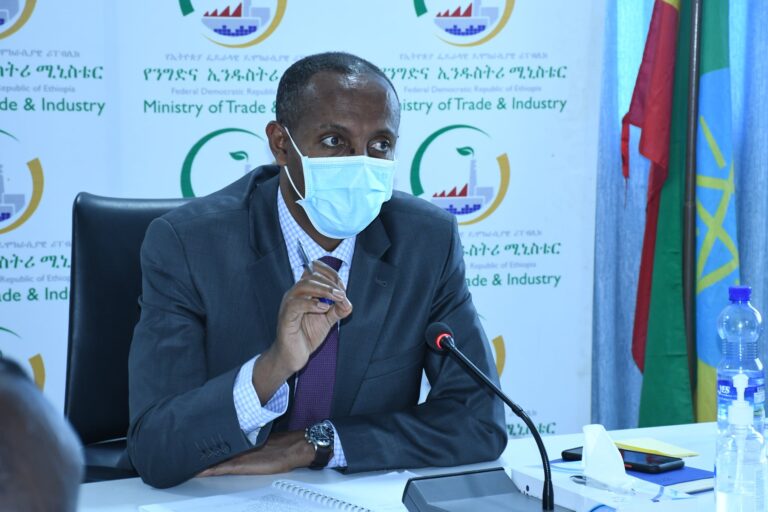Zemi Yenus, a special African Voice who dedicated her life to fight for Ethiopian children with autism and related disorders has passed away on Monday May 11, 2021 late mid night due to COVID 19. Zemi was the founder and director of Nia foundation, which was a joy autism center founded to reduce and support children with autism who were neglected, forgotten and left in the dark. Her foundation now supports and takes care of over 80 children.
Zemi was born and raised in Addis Ababa. She left Ethiopia during the Red Terror, a time of violent political unrest in the late 1970s and went to Italy at age 17. At age 19, she started working for a Refugee Service Agency called UCEI that worked alongside with the United Nations High Commission for Refugees. As part of her work, she was in charge of migrant’s entry to the U.S.A. After completing a course in Cosmetology, she worked in several places in California, including in Hollywood and Beverly Hills and established her own beauty salon in Los Angeles.
In 1992, soon after the Military Regime changed, Zemi returned to Ethiopia to make it up for her country by doing everything possible to change situations with a special concern for young girls. On her return to Ethiopia, she opened ‘Niana School of Beauty and Modeling’, the first licensed professional beauty and modeling school in the country.
In the meantime, she was facing enormous challenges because her son was continuously expelled from schools because of his autism. He was viewed as spoiled and undisciplined. She tried several schools for her son, hoping to find one that could meet his needs. Finding no schools equipped to deal with children in the Autism Spectrum Disorder in Ethiopia where many children with Autism were considered cursed and possessed and, were chained and locked away in dark rooms, she had to decide whether to go back to the United States, where such schools existed, or stay in Ethiopia. Through these trying times she learned about other parents’ challenges in raising their children with autism.
Particularly, she found out that mothers were blamed for their children’s’ condition. Determined to end the stigma, exclusion and physical confinement that afflicted autistic youngsters, Zemi decided to stay in Ethiopia and made her life’s purpose to aware the public about autism and to change the lives of parents and children with autism and other Intellectual disorders.
She began autism awareness creation program by including the issue in the modern and traditional beauty services and products exhibitions she organized. When it became clear that creating awareness was not enough by itself, in May 2002 she opened the first autism center, using funds from her Niana School of Beauty and Modeling.
She used to say that one of her best achievement is also the personal and organizational advocacy efforts she exerted that resulted in better inclusion of ‘Autism’ in the government policies, plans and guidelines.
Zemi has been building a new autism center that can accommodate 500 Ethiopian children with autism and related developmental disorders in Ethiopia on 5,000 hectares of land with a capital of 250 million Birr. A world class autism center of excellence for the purpose of conducting operational researches, providing holistic therapies and specialized education for children autism and related disorders was what she envisioned in addition to seeing mothers smiling as opposed of feeling ashamed of their children from the ridicule that society brings forth.
Unfortunately, COVID-19 blocked her from realizing her dream. As learnt from the eulogy read on her funeral ceremony, the director was infected by the Coronavirus and had been treated in one of the COVID Treatment centers in the capital, Addis Ababa.
Renowned autism champion, Zemi Yenus, succumbs to COVID-19
Ethiopia inaugurated the Modjo-Meki-Batu 92 km road
Ethiopia inaugurated the Modjo-Meki-Batu 92 km road, completing the first phase of the country’s contribution to Trans-Africa Highway in the presence of high government officials and other multinational organization heads. Farmers can now create market linkages easily, and transportation services will be more efficient. With the finalization of the project it will increase the flow of tourism and strengthening of industrial parks. Completion of the highway will pave the way for the country’s economic, social and political integration across the continent.
Industrialists blast gov’t for equal ground
During the closed forum that was held on Wednesday, local industrialists claim that government is not providing equal treatments for the Ethiopian investors on FDIs, Capital learnt.
Sources revealed that on the meeting held at Sheraton Addis on Wednesday May 5, local manufacturers have expressed their disappointment on the behavior of government which is seen to give different privileges for foreign investors that are not accessible for Ethiopians.
Investors who attended the meeting aired out their frustration blasting government by expressing that the unfair treatment has cornered them out from the competition whilst leaving the industry sector to blossom for the foreign investors.
The closed session which was held under the title ‘Dialogue Forum between the Public and Manufacturing Industry Sector Actors’ geared to engage the likes of Adanech Abebe, Deputy Mayor of Addis Ababa, , Debele Kabeta, Commissioner of Customs Commission, and Jantrar Abay, Deputy Mayor of Addis Ababa attended.
Sources told Capital that, Adanech did not attend the event because of other urgent matters.
Local manufacturers including prominent and huge investors were major attendees who expressed their grievance on the handlings of the government.
One of the participants told Capital that the investors have appreciated the government latest way to provide investment lands for those with really needs than the previous malfunction practice, “Otherwise, mostly participants expressed their complaints stating that they not equally seen in comparison with other foreign investors.”
Investors raised the issue that the tax authority is penalizing them by comparing invoices with foreign investors. “The over invoice issue is the new threat that aggravates us to express our concern for the government. Foreign investors are coming with exaggerated invoice (over invoice), while the actual price of the given product might be lower by half,” one local investors told Capital about the issue and explained that foreign investors are using the over invoice for illicit foreign currency flow, exaggerating their production cost that leads them to hide tax.
“However, traditionally the tax authority is using the higher invoice value as a benchmark to calculate levy and based on that it is penalizing local investors extra sum on their imports,” a participant told Capital.
The other issue that was raised at the discussion that was only attended by local investors was that foreign manufacturers are openly selling their products without receipt, “while no one accused them,” participants said.
They added that the foreign investors have no issue about access to foreign currency that National Bank of Ethiopia (NBE) is implementing a directive to access foreign currency on suppliers’ credit, while local investors are in trouble.
For over three years to now, NBE has revised the suppliers’ credit directive and introduces a scheme that only FDIs to access goods on credit. Recently, Eyob Tekalgne, State Minister of Finance, told media that the government evaluated the gap that excluded local industrialists from access materials and inputs on suppliers’ credit. He expressed that the directive has revised to include local investor but it is so far yet to be applied for the neglected.
At the forum, local investors argued that they have to be treated in the same way with other investors and asked the government officials to level the completion grand for all actors.
“The foreign investors should pay the tax equally that we are paying,” participants claimed at the forum according to sources. “Give us the privilege that NBE gives for others,” they added.
Regarding the tax issue one of the participants told Capital that the government should compare the income tax settle between the local investors and foreigners “despite there are huge and many foreign investors in the country you may not see much of them on the higher tax payers list that the government recognizes every year,” he says, adding, “rather than not paying required duties they are accessing several incentives and relief.”
“The comments given by investors at the forum were accompanied by shouting and applause of participants, which shows me how much the local investor are in depressive condition,” one of the prominent investor who attended the event told Capital.
Sources said that despite participants expressing their angers and claims at the event, satisfactory promises or responses were not given from the stage.






